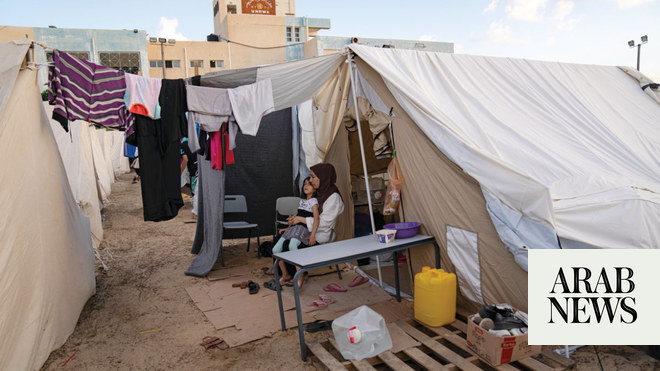
IDLIB — In the car park and under the stands of a football field in Idlib city, northwestern Syria, families with nowhere to go after fleeing war live in tents.
"This is a football stadium. It"s unfit for people to live in," says 32-year-old Abu Fawz, wearing a bomber jacket and red baseball cap flipped backwards.
"There"s no electricity, no water and no bathrooms" apart from portable toilets, the father of three says.
"People keep coming and going," and there"s no privacy.
Since December, Russia-backed government forces have been waging a deadly offensive to retake the last major opposition bastion of Idlib in northwestern Syria.
They have clawed back dozens of towns and villages from the jihadists and allied Turkey-backed rebels, sparking one of the worst humanitarian disasters of the almost nine-year-old civil war.
The assault has forced nearly one million people, mostly women and children, to flee their homes and shelters in the region.
Abu Fawz and his family fled bombardment on his hometown of Maaret Al-Numan late last year.
"Thank God I managed to save my wife and children," he says.
After grabbing the bare necessities as the town emptied, they sped north to the provincial capital of Idlib city, but struggled to find a home there.
"We were stuck in the streets until we were told there was a camp at the football stadium," Abu Fawz says.
"Tragedy"
Unable to find a spot in overcrowded camps or pay for rent in town, many of those displaced in recent months have slept in fields or sought shelter in schools, mosques and unfinished buildings.
In the middle of winter, AFP correspondents have seen families forced to sleep in their cars, in underground shelters, in a cemetery hall and even an abandoned prison.
On the wet grounds of the Idlib football stadium, fresh laundry hangs out to dry outside neat rows of white tents and along the edges of the field.
A motorbike darts up to park in the shade of the bleachers, while children hurry along the pathways between their canvas homes.
Standing between the tents, 65-year-old gynecologist Umm Sanaa says she also hails from Maaret Al-Numan.
After her home was bombarded four months ago, she was pulled from under the rubble and taken to hospital. When she recovered, she came to live in the camp.
"It"s a tragedy," she says.
"We want a peaceful solution so everyone can go home — even if only to eat bread."
"Nothing here"
The Idlib conflict has escalated in recent weeks, with Turkey directly intervening after the killing in late February of 34 of its soldiers in an airstrike it blamed on Damascus.
Turkish President Recep Tayyip Erdogan has said he hopes a ceasefire will be established when he meets with his Russian counterpart Vladimir Putin on Thursday.
But a new report has found that fighting in northwestern Syria has rendered large parts of the region uninhabitable.
Save the Children has warned that, even in the case of an immediate ceasefire, it would take "months if not years" to rebuild destroyed civilian infrastructure and the trust for communities to return.
Standing in the terraces overlooking the green football pitch, 10-year-old Jana says she dreams of returning to a normal life — and school.
"Children want to learn," says the girl, born a year before the start of the civil war, which the United Nations says has deprived some 280,000 children of an education in northwestern Syria alone.
"We need schools," she adds, standing above the running track in a blue jumper and black headscarf decorated with stars.
"There"s nothing here to fill the void." — AFP












